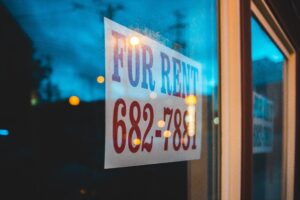Is Your Landlord Responsible for Deadly Fires?

When tenants rent a space to be their home, they expect safety. However, whether due to negligence or other reasons, accidents do happen. Earlier this month, the Office of the Queens County Public Administrator brought two Queens Supreme Court lawsuits against a landlord following a fatal fire that killed two young women. The suits allege their landlord was negligent in not installing smoke detectors or sprinkler systems in the Queens rental property that caught fire in 2021. Although installing smoke detectors and sprinkler systems may have prevented the tragedy, it is not an isolated incident. Other tenants have filed similar lawsuits following other fatal fires.
Below, the New York personal injury lawyers at Sullivan Papain Block McManus Coffinas & Cannavo P.C. discuss how a landlord may be responsible following a fire.
NYC Landlord Had No Fire Alarms or Sprinklers in Rental
According to the NY Post, the fire happened in a third-floor apartment in Queens where three sisters and their mother slept when overloaded extension cords caused an electrical fire. Unfortunately, nothing indicated they were in danger because the rental property did not have fire alarms or sprinklers. The ensuing delay in leaving the property resulted in the death of two of the daughters from smoke inhalation.
The suit alleges that the landlord violated multiple city and state housing codes, and the Public Administrator’s office seeks unspecified damages.
Faulty Self-Locking Doors Allow Deadly Smoke to Spread
More recently, multiple fire lock doors failed to lock, endangering residents of a 19-story apartment building after a fire broke out on one of the lower floors. According to The New York Times, the fire originated in the two-story apartment and was largely contained. However, 17 people died of smoke inhalation, and 60 were injured when self-locking doors, intended to prevent the smoke from reaching other apartments, failed to lock.
While the apartment building did have smoke detectors and fire alarms, residents reported a frequent history of false alarms that led them to ignore warnings. Many people who died lived 12 stories above the apartment where the fire started. More than 65 lawsuits have been filed against the apartment building’s ownership consortium.
Is a Landlord Responsible Following a Tenant Fire?
Laws and regulations can vary by jurisdiction, but all landlords have a legal duty to provide a safe living environment for their tenants. Therefore, if a landlord fails to keep their property safe due to their own negligence in maintenance or preventive measures, they may be held responsible, especially in the case of injury or death.
To pursue a legal claim following a fire, you must typically demonstrate that you have suffered harm or incurred damages directly related to the absence of smoke detectors or other safety measures, including injuries from a fire or smoke-related incidents that could have been prevented or mitigated by the presence of functioning smoke detectors.
If you or a loved one has been injured in an apartment fire because of a landlord’s negligence, seeking out legal advice from a qualified attorney familiar with your local landlord-tenant laws is crucial as they can provide personalized guidance based on the specifics of your case and help you navigate the legal process.
In addition to reviewing applicable laws and regulations they can determine whether you have a valid claim against your landlord and advise you on the potential legal remedies available, such as seeking compensation for injuries, property damage or even pursuing a lease termination.
Our New York attorneys at Sullivan Papain Block McManus Coffinas & Cannavo P.C. stay up-to-date on local laws and regulations to best serve victims. If you or a loved one experienced severe injury or death because of a landlord’s negligence, please contact our team of attorneys by calling (212) 732-9000.
This article was sourced from multiple outlets, including The NY Post, The New York Times, and The Bronx Times.
